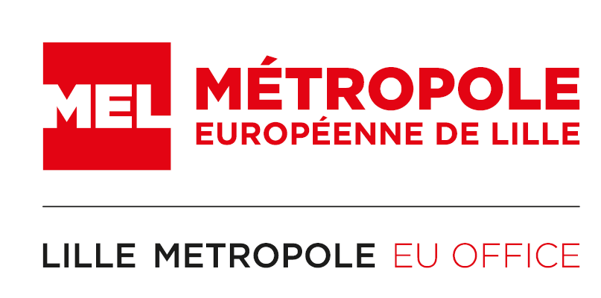
Adopting the #RésolumentDigitale Strategy in June 2016, Lille Metropole addressed its digital transition as a vector of sustainable development of its territory, of economic performance and attractiveness, of citizenship and creativity.
The #RésolumentDigitale Strategy allowed Lille Metropole to drive the digital development of its territory in close partnership with municipalities, the Hauts-de-France region, the French government, the European Union, business partners, NGOs and education and research partners.
With more than 2.8M€ between 2016 and 2020, the implementation of this strategy and its action plan has been massively supported by the European Regional Development Fund (ERDF) in the framework of the Regional Operational Program, led by the region Hauts-de-France since 2014.
These credits allowed the establishment of dedicated expertise and the structuring of a real innovation community thanks to events such as the Grand Barouf numérique or the Jeudis du numérique.
The ERDF also supported the creation of tools aiming to provide inhabitants and visitors with a simplified and more united, accessible and personalized « users path ». This is notably the case of the Pass Lille & Moi developed by the City of Lille thanks to contactless technology. This unique and multi-service card gives free access and services (libraries, zoo) or reduced fees (pools, museums) in municipal structures of Lille. The City Pass developed by Lille Metropole is also contactless and gives simplified access to major museums and tourist sites of Lille Metropole but also within the region Hauts de France(for instance: Louvre-Lens).
Digital transition of the administration was also at the core of the digital strategy’s ambitions, especially in terms of Open data. On this matter the ERDF supported the mutualisation of the Open Data portal launched by Lille Metropole for the benefit of all voluntary municipalities members of the metropole.
The diversity of these projects reflects the diversity of the issues related to digitalisation of services and activities, that enables to create new types of job and already sets off a deep change in practices, uses or production lines and logistics.
In the current context of the pandemic, digital is a must in local development but it is still unevenly appropriated by different publics: citizens (illectronism), small companies (digitalization delay), public interest services (territorial inequity, administrative simplification).
That is why an updating process of the metropolitan digital strategy is carried out in order to make the most of the benefits from digitalization. This work will allow to meet the goals set by the new 2021-2027 funds, which put forward the acceleration of digital transition to the profit of citizens, companies and public authorities in the Hauts-de-France region.

